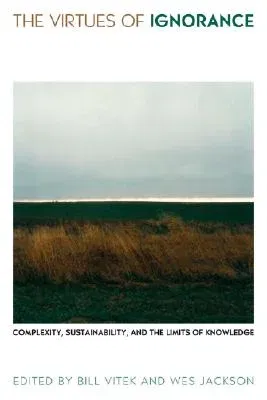Human dependence on technology has increased exponentially over the past
several centuries, and so too has the notion that we can fix
environmental problems with scientific applications. The Virtues of
Ignorance: Complexity, Sustainability, and the Limits of Knowledge
proposes an alternative to this hubristic, shortsighted, and dangerous
worldview. The contributors argue that uncritical faith in scientific
knowledge has created many of the problems now threatening the planet
and that our wholesale reliance on scientific progress is both untenable
and myopic. Bill Vitek, Wes Jackson, and a diverse group of thinkers,
including Wendell Berry, Anna Peterson, and Robert Root-Bernstein, offer
profound arguments for the advantages of an ignorance-based worldview.
Their essays explore this philosophy from numerous perspectives,
including its origins, its essence, and how its implementation can
preserve vital natural resources for posterity. All conclude that we
must simply accept the proposition that our ignorance far exceeds our
knowledge and always will. Rejecting the belief that science and
technology are benignly at the service of society, the authors argue
that recognizing ignorance might be the only path to reliable knowledge.
They also uncover an interesting paradox: knowledge and insight
accumulate fastest in the minds of those who hold an ignorance-based
worldview, for by examining the alternatives to a technology-based
culture, they expand their imaginations. Demonstrating that
knowledge-based worldviews are more dangerous than useful, The Virtues
of Ignorance looks closely at the relationship between the land and the
future generations who will depend on it. The authors argue that we can
never improve upon nature but that we can, by putting this new
perspective to work in our professional and personal lives, live
sustainably on Earth.

